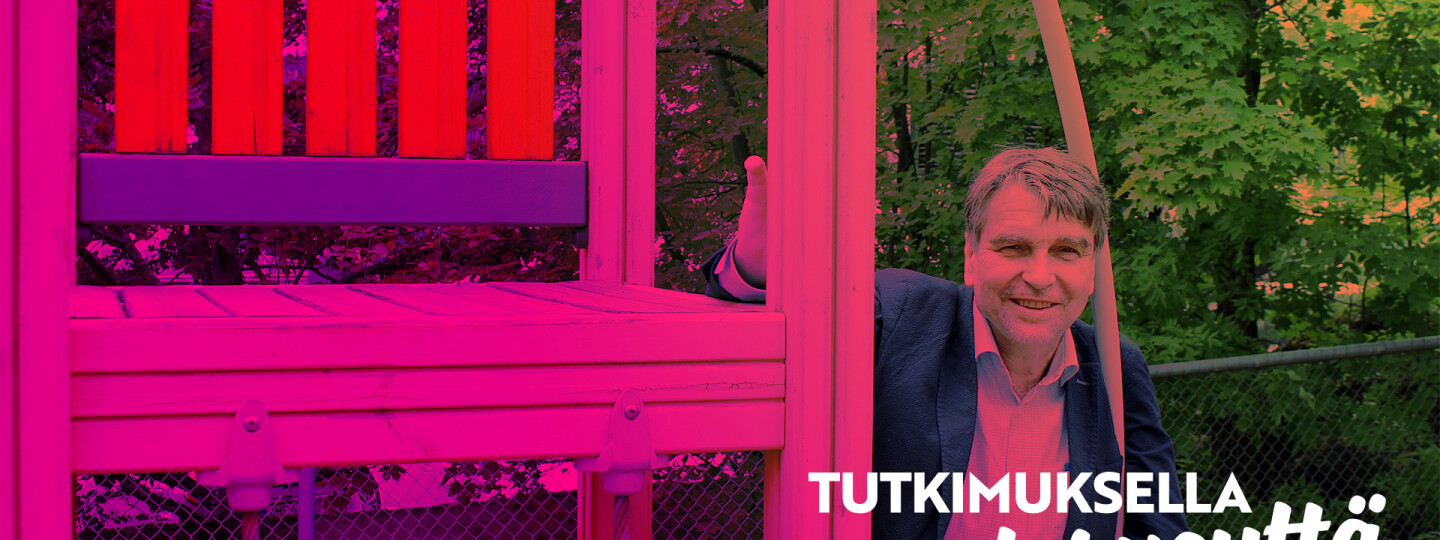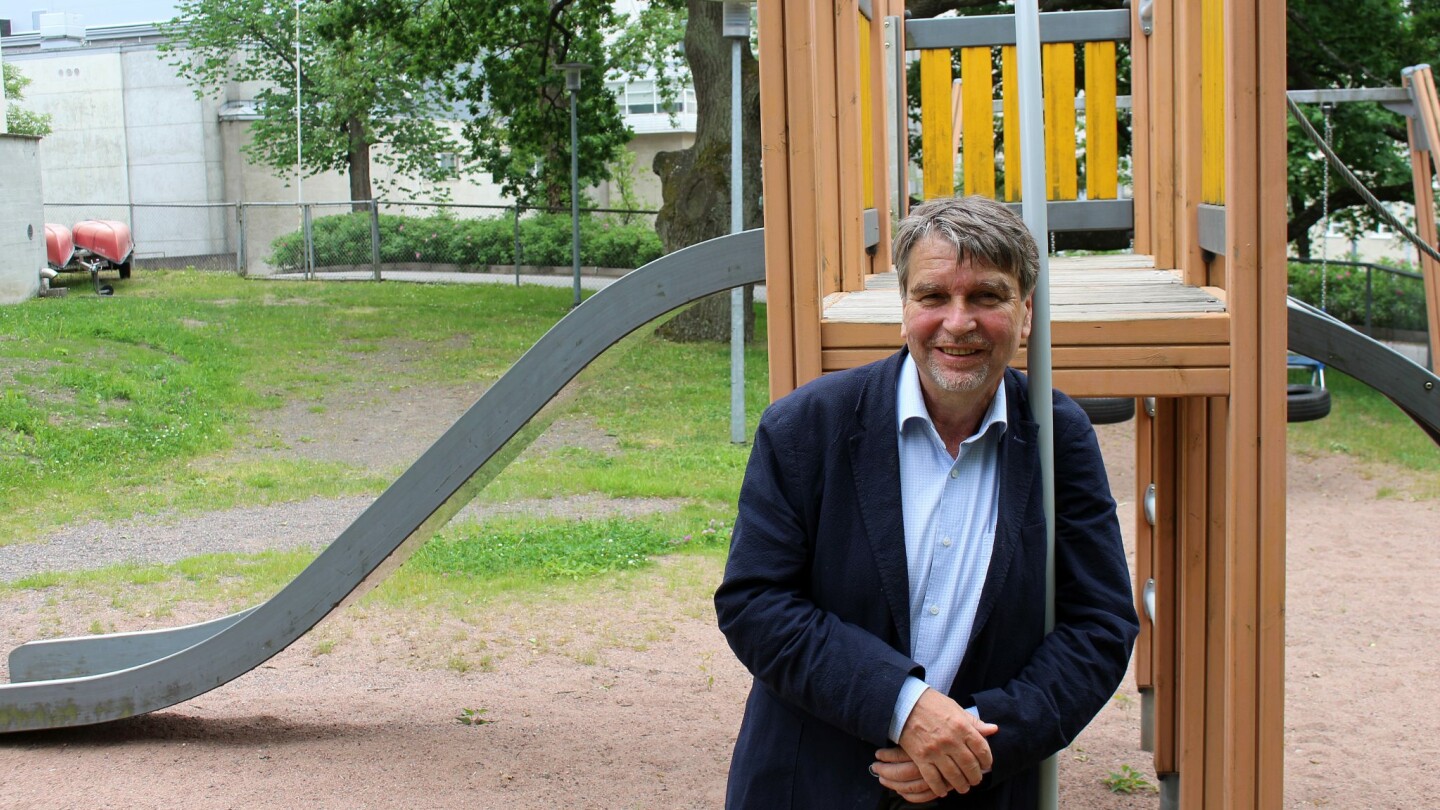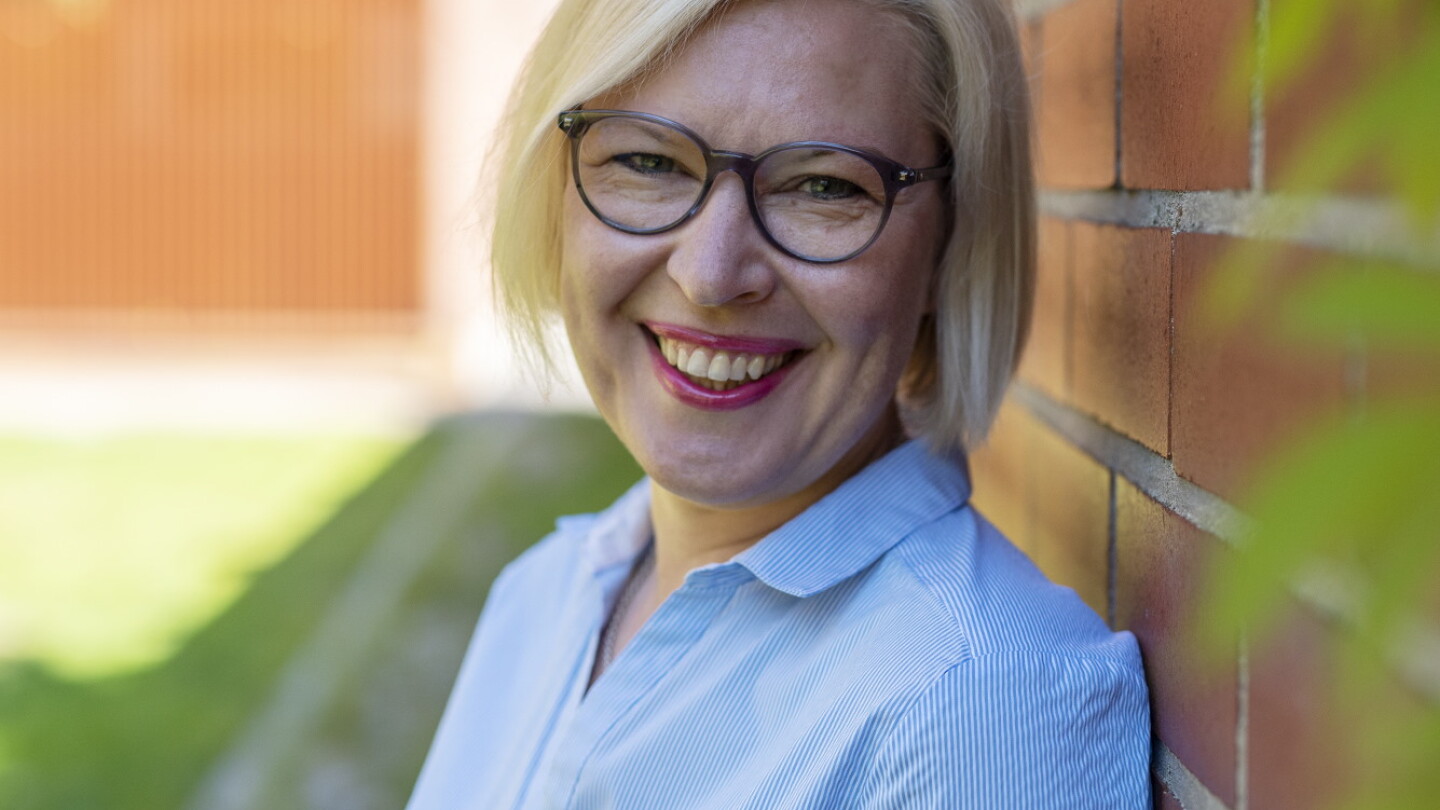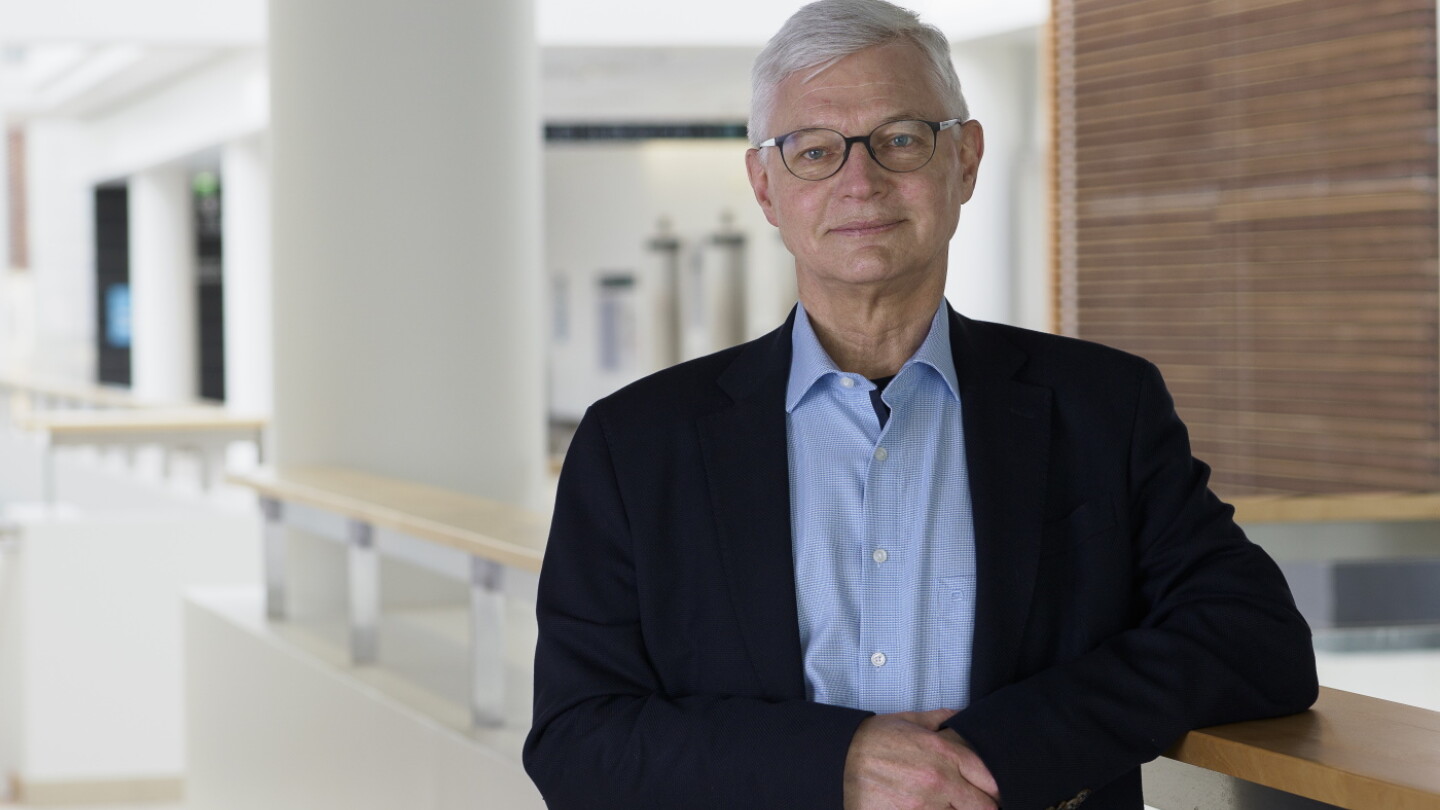In Turku, child psychiatry recognises the inseparable connection between the psychological well-being of children and society. Factors such as the COVID pandemic, war, and migration have a significant impact on the mental health of children and adolescents. In addition to conducting cutting-edge research, Turku is actively developing means to make an impact on psychological well-being from an early stage within primary health care, starting from maternity clinics.
“Psychosocial and mental health issues are increasingly highlighted in public discussion. Something needs to be done at an early stage and we need means for it”, says Professor André Sourander.
Epidemiological research in child psychiatry has been conducted on both protective measures and risk factors relating to the psychological well-being of children. According to Sourander, particular interest has been shown towards the impact of biological factors on child development during pregnancy. The impact of risk factors extends not only to mental health, but also to the person’s entire future, education, exclusion, self-destruction, and substance abuse problems.
The Research Centre for Child Psychiatry is an independent research centre of the University of Turku. Sourander is the real primus motor of the research centre, and his scientific work and US connections have built up an internationally significant body of research. Evidence of this is the considerable research funding received from the European Research Council (ERC) to develop mental health services for children. The project explores the implementation, personalisation and genetics of digitally assisted parenting.
Overall, psychiatry is the largest operational area of Turku University Hospital (Tyks), employing over 1,000 people. Despite challenges in service accessibility, much good is being done in the field of child and adolescent psychiatry, where research and clinical work go hand in hand. Senior Physician Taina Juvén has been active in introducing the latest research and treatment methods to Tyks Child Psychiatry. The exponentially growing amount of research-based information in the field has led to a demand for trained specialists.
“Studies have shown that, in most situations, even a little help given is enough as long as it is given in time. The Research Centre for Child Psychiatry is making a valuable contribution here, having developed fine methods for children and adolescents”, says Head of Operational Division in Tyks Psychiatry Jyrki Heikkilä.
Strongest Families programme implemented in every third child health clinic
Doctoral Researcher and Development Manager Terja Ristkari conducts research on digital services and interventions in the Research Centre for Child Psychiatry.
“Children and families have a long way to go before they get access to specialised care. A lot should be done already before that”, says Ristkari.
The Strongest Families parent training intervention programme has shown remarkable effectiveness in Turku, and has been implemented in every third child health clinic in Finland. The programme was developed in collaboration with a Canadian working group. The study was based on research evidence that untreated behavioural problems have a poor prognosis, and early intervention is of great importance.
The role of the child health clinics in the Strongest Families programme is to identify the families that could benefit from it. Epidemiological research evidence also serves as the foundation for this identifying process. When screening for vision, hearing, height and weight, psychosocial well-being is also assessed. And once identified, a family can get help already in three weeks through digital parent training combined with regular telephone coaching.
Sourander says it is revolutionary that help is available so quickly and evidence-based treatments have been implemented into primary health care. Similarly, a digitally assisted programme for school-age children is currently being developed, with a significant study to be published in the future.
”The effectiveness of parent training has long been recognised globally. We teach positive parenting skills that support the child”, says Ristkari.
Simple actions are crucial, for example, parents are guided to focus on the good in their child. Marjo Kurki, Senior Researcher at the ITLA Children's Foundation, has been actively involved in implementing the parent training model on a regional level and into child health clinics. She highlights that research has been conducted on the impact of the Strongest Families programme, and the results indicate that there has been a reduction in children’s symptoms. Moreover, parenting skills improved as well.
“Decision-makers value research evidence on the impact of the Programme”, emphasises Kurki.
The recognition that children and parents need help at different stages of their life has been fundamental in the field of child and adolescent psychiatry. Among school-age children, anxiety is the most common mental health problem. Moreover, the transitional periods of adolescence and early adulthood represent moments of risk.
“The Research Centre for Child Psychiatry possesses a strong research expertise that is unique and systematic both in Finland and internationally. We should also use this expertise nationally, as pioneers. It is by no means self-evident that the results will be integrated into structures and put into practice”, says Kurki.
Clearer and more consistent services
Jyrki Heikkilä, Head of Operational Division of Tyks Psychiatry, notes that the Ministry of Social Affairs and Health has emphasised the importance of university hospitals in the development and quality monitoring of psychosocial methods at a regional level. Tyks coordinates this integration in primary health care services in the wellbeing services counties of Southwest Finland, Satakunta and Ostrobothnia. Almost €1.8 million has been received as continued funding from the Future Health and Social Services Centres programme.
Heikkilä states that there is currently significant pressure on specialist services due to limitations in primary healthcare services. The aim is to unify the currently fragmented field of psychiatric care and develop consistent models of treatment, training, support, and professional guidance. The project involves training experts in specific treatments that have been proven effective through research.
Heikkilä’s area of expertise is interpersonal psychotherapy (IPT) for adolescents. The idea is to combine elements of both psychodynamic and cognitive therapy, which have been proven most effective in the treatment of depression.
“A therapist helps the patient to change their interaction patterns in the areas that pose difficulties for them”, describes Heikkilä.
“In therapy, the focus is on specific situations, such as a conflict in interaction with a mother, father or friend, which are then discussed in detail. What did they say, how did you feel, what could have been done better? They can use roleplay exercises and assign tasks for the patient to use in their daily life. This approach has shown to be surprisingly effective in cases where the disorder is not severe.
The aim is to acknowledge the needs of adolescents and provide them with the opportunity to change their interactions with others in a manner that supports their recovery from depression”.
The Research Centre for Child Psychiatry leads a consortium that receives funding from the Academy of Finland. Moreover, the Centre is involved in sub-projects in multiple consortia funded by the Academy of Finland, the National Institutes of Health of the USA, and ERC funding from the European Union. The Research Centre is part of the INVEST flagship research on inequalities, interventions and the welfare state. The Centre is also one of the units of excellence within Tyks.
Turku University Hospital, the Faculty of Medicine at the University of Turku, and the surrounding campus area form a multidisciplinary cluster of excellence in which research and the high-quality treatment based on it form a seamless entity. More than one thousand scientific studies are under way in these organisations, engaging approximately 1,500 experts. Approximately 200,000 patients receive treatment at Tyks every year. Visits to outpatient care total over 1.2 million and days at inpatient care almost 300,000. The University of Turku and the Hospital District of Southwest Finland are part of the Health Campus Turku network, which also includes Åbo Akademi University, Turku University of Applied Sciences, Novia University of Applied Sciences and Turku Science Park Oy.







